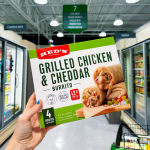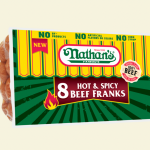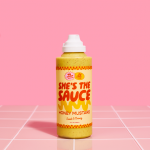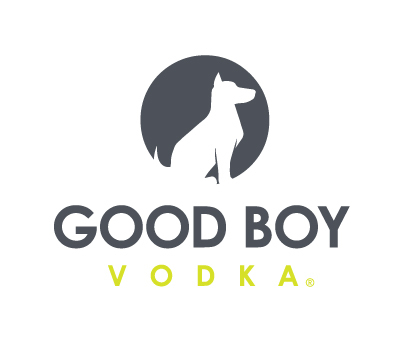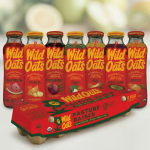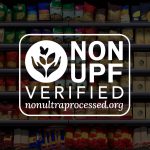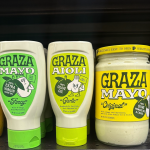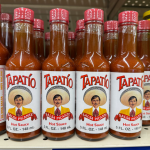Gainful Brings Personalized Supplement Powders from DTC into Brick-And-Mortar
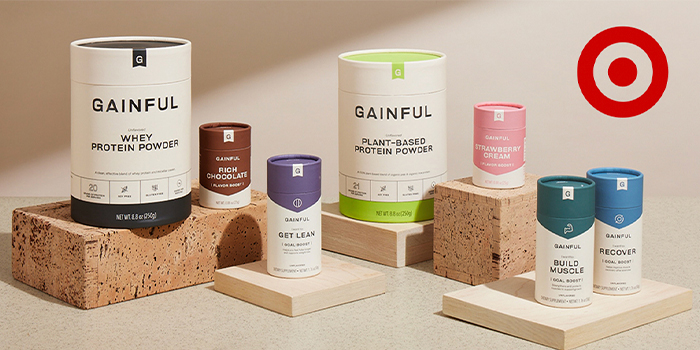
After building a following online for its personalized nutritional supplement business, Gainful is branching out from its direct-to-consumer roots by launching nationwide in Target.
The partnership maintains Gainful’s customizable, personalized approach to meeting individual nutritional needs while simplifying the process to meet Target customers both online and in-store.
“Our expansion into retail allows all of America to essentially make their own gain,” Gainful CEO Dean Kelly told NOSH this week. “A customer in a mass retailer may be a little bit less knowledgeable in this category. They may be looking for a quicker, simpler solution to helping them find the right product for them and that’s what we have given them.”
On Gainful’s website, users are asked to answer questions regarding their physical characteristics (age, weight, height) as well as their nutritional and exercise goals and habits. Online, the company offers many core protein bases, hydration powders and pre workout powders all of which can be customized with different flavors, ingredient decks and functional performance boosts, in thousands of combinations.
“In the past, [customers] have had to stand in front of an aisle full of supplements in a store and thought, I have no idea what to do here, what do any of these ingredients mean, what’s for me, what’s the difference between any of them,” he continued. “We’re building a platform where we bring personal nutrition to everybody.”
Choosing supplements can be an intimidating experience for many consumers, Kelly said, and online, the company’s proprietary algorithm helps simplify this process. In order to maintain this streamlined approach in retail, Gainful chose to reduce its assortment and focus on its top selling skus.
The national rollout in Target takes pieces of the company’s online approach by simplifying the process into three steps. First, customers are asked to choose a protein-base (whey or plant-based for $19.99 each), then are prompted to choose a flavor (Rich Chocolate, Madagascar Vanilla, Strawberry Cream, Cinnamon Toast for $3.99 each) and finally a “goal boost” (Build Muscle, Get Lean, Recover for $7.99). The three products are then added together shaken up amounting to about 12 oz. of powder. Customers can also add in a Hydration or Pre-Workout enhancer for an additional $20.
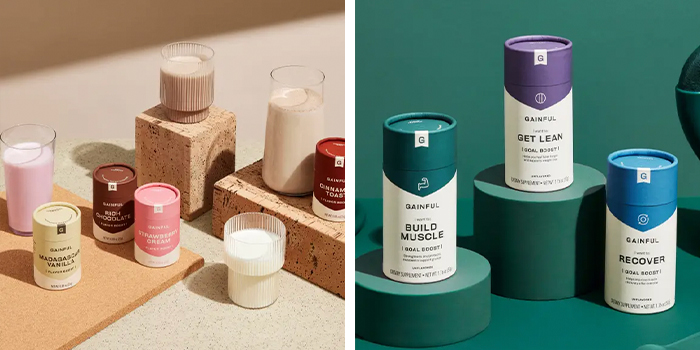
Target seemed like the best choice for Gainful to make its brick-and-mortar debut because they have a history of bringing digitally-native brands into physical locations, Kelly said. Magic Spoon first launched its DTC cereal brand in retail last June in Target and the retailer was one of the first placements for condiment brand Fly by Jing.
In addition, he said, Target has experience building sets around product systems versus simply lines of SKUs. In January 2021, the retailer launched D2C brand Function of Beauty into its stores, a line which allows shoppers to customize four shampoo and conditioner bases with assorted functional serums for differing “hair goals.”
Gainful took on new funding in January 2021 when it closed a Series A round that netted $7.5 million, but Kelly insisted the brand had not needed additional investment for the Target launch. Conversations with Target started in August 2022 and moved rapidly during the ensuing months to get Gainful’s supplements in all locations. The brand plans to bring end-cap displays into stores later this year along with more product offerings like different protein options and boosts.
While the brand’s products are sold in zip top bags and plastic tubs online, in Target the brand has switched to 100% recyclable tubes in order to meet Target’s Net Zero sustainability program.
Gainful is also trying to find other ways to bring the online experience of free registered dietician consultations and more personalized options like meal replacements and sleep aids to the retail environment. The company also believes its robust email list of consumers can be used to drive traffic into stores.
“We’ve had over 3 million people take our quiz and we are taking that learning and the data that we have and we are using that data to work out what to launch where and how in retail,” Kelly said. “That puts us at a really significant advantage over a lot of our competitors.”
This shift into physical retail locations has been a core tactic other supplement brands have used to drive growth and expand their own customer bases. Performance-focused food and beverage brand TB12 made its leap from DTC to retail with a launch of its protein powders in select Publix and Whole Foods locations in October 2020. In January 2022, Athletic Greens, another digital-first supplement brand, took on $115 million in new funding to expand distribution. Though currently still only sold on its website and Amazon, the brand said it eventually intended to move into brick and mortar.
Kelly is confident that the brand’s investors and co-manufacturing partners are ready to support the brand as it expands into retail.
“We want to be able to say yes to opportunities,” he said. “Currently, we’re out of stock in so many stores because of how well we’re doing. So we will need that additional capital to be able to expand this year.”

